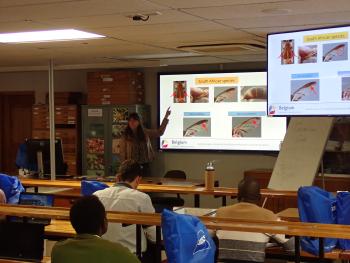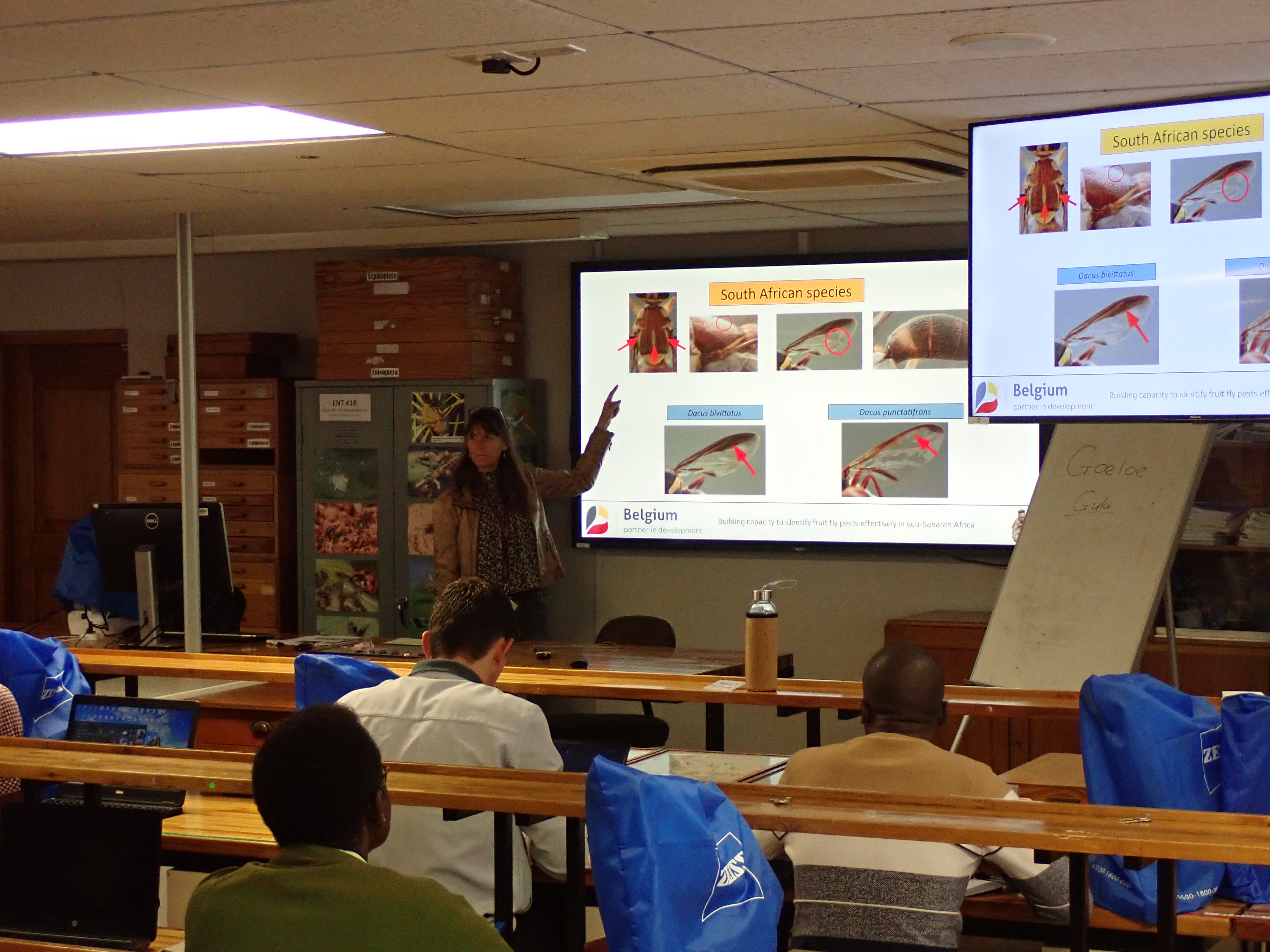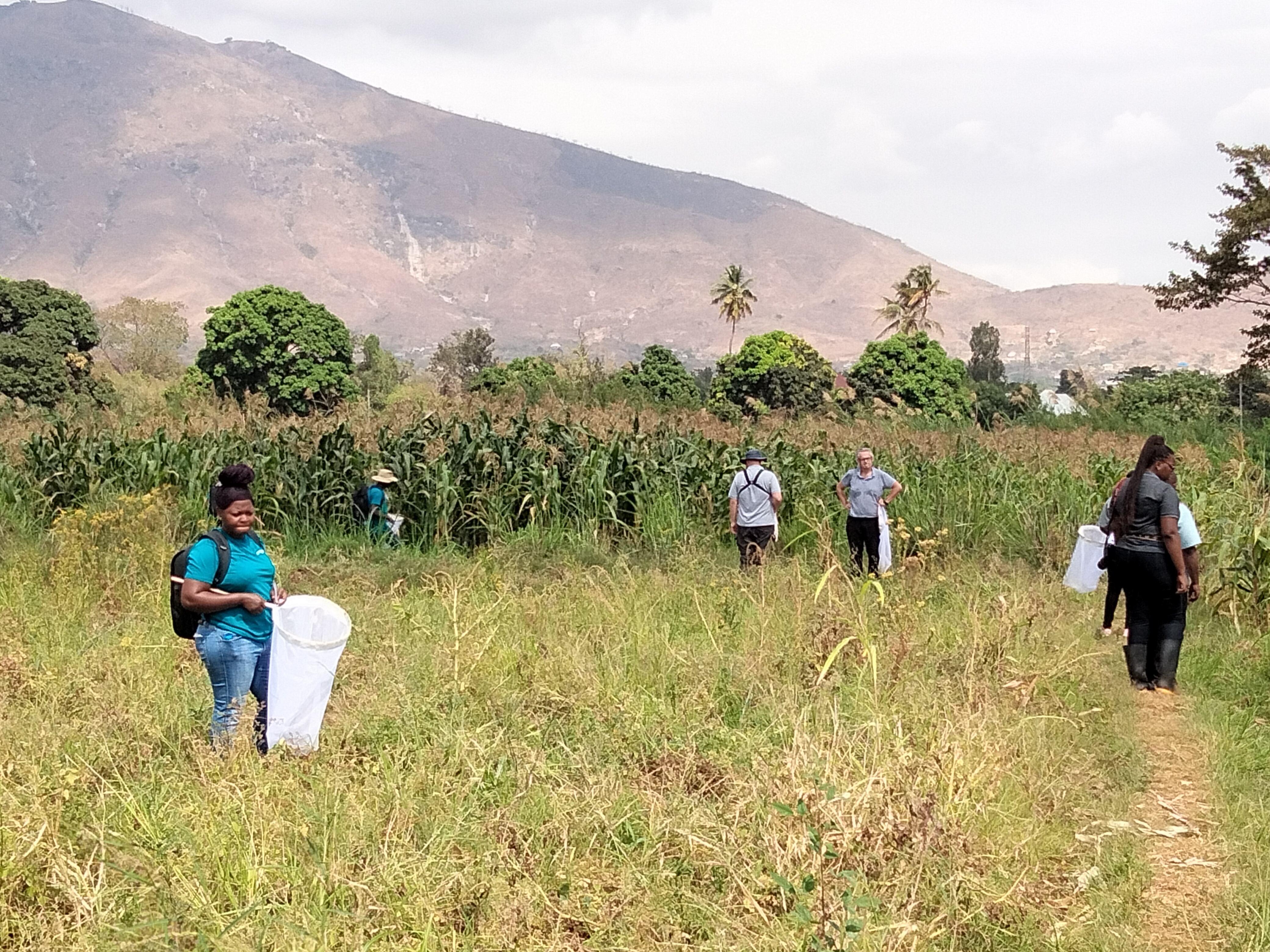Training courses AGROVEG and DISPEST

November has been a busy month for outreach and training with regard to RMCA fruit fly projects funded by the Belgian Development Cooperation. Within the framework of DISPEST a training course in fruit fly identification was organized at Stellenbosch University (South Africa). This was the first course with lessons directly provided by African instructors who followed a dedicated, advanced course for “training the trainers” last year in Stellenbosch. With this approach, we aim at promoting South-South knowledge transfer on fruit fly identification and pest management. In total, 23 delegates (of which 10 financially supported by DISPEST) from seven different countries participated in the course which consisted of theoretical lectures and hands-on training. Additional lectures were given by some former trainees on specific aspects such as record keeping, databasing and spatial modelling (view the full program here).

This was preceded by an extensive training course in taxonomy and identification of Dipteran pollinators which took place at Sokoine University of Agriculture (Morogoro, Tanzania). This was the last bi-annual training course organized withing the framework of the AGROVEG project, entirely funded by Belgian Development Cooperation. With lecturers from Belgium, the UK and South Africa, a group of 12 delegates from eight different countries were trained in general entomology and the identification of Diptera. The training had a strong focus on practical aspects such as the use of various trapping techniques, and the preservation of Diptera, including pinning, labelling, databasing, and collection management. Participants prepared a small, but state-of-the-art reference collection of Afrotropical Diptera which they were allowed to take to their institutions.
